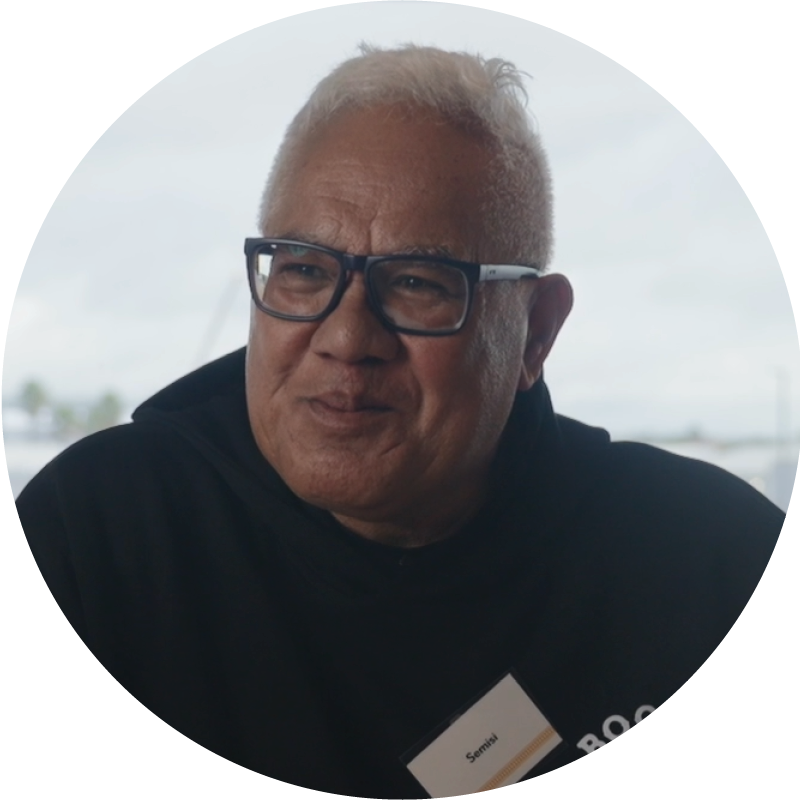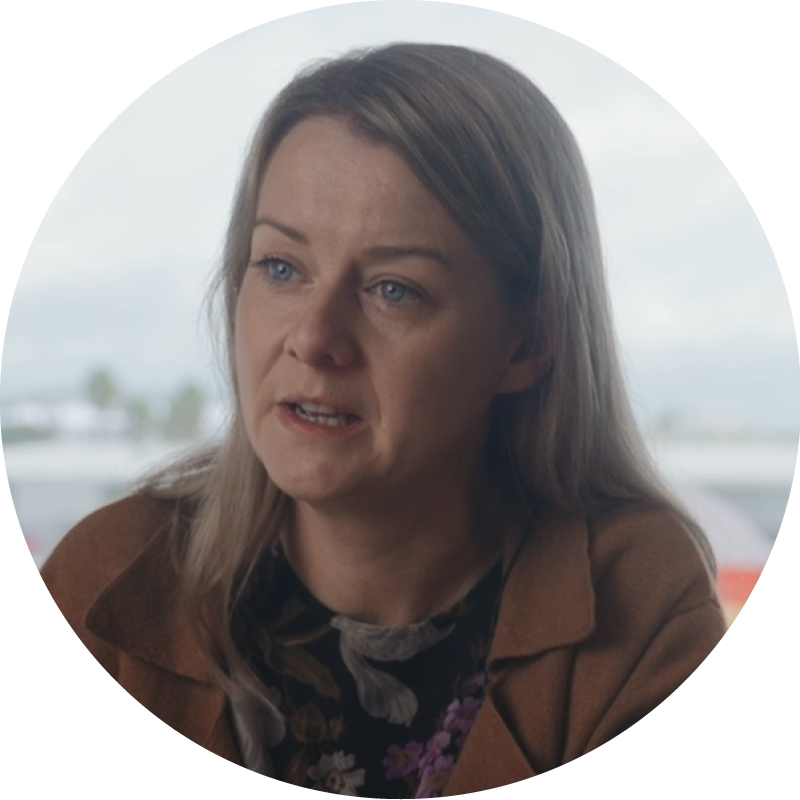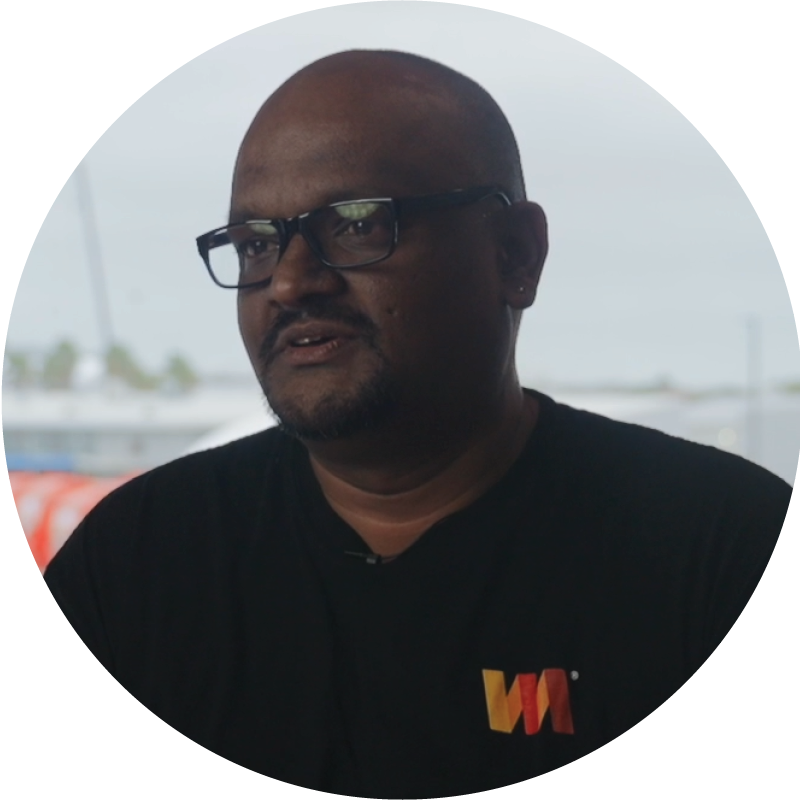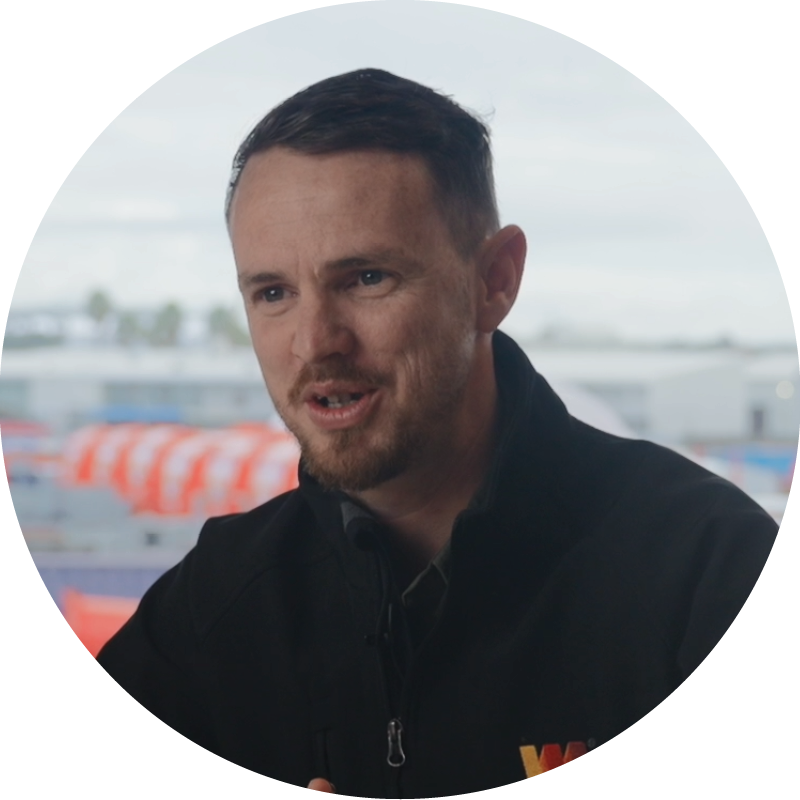
For Semisi Semisi, an operator in WM’s hazardous waste technical services team, the conversation was deeply personal. At 65, Semisi has spent decades caring for his physical health — regular medical check-ups, hearing and vision tests, drug screenings for work. But, as he told the group, “the top three inches” — his mind — hadn’t had the same attention.
“Physically, I’m okay now. But I noticed my head wasn’t in good condition,” he said. “At work we have systems that check our bodies. But for my mental health, by the time I reached out for help, I’d already fallen over the cliff. I needed the ambulance at the top, not at the bottom.”
Semisi described how stress had crept into his life and changed the way he treated others — becoming grumpy, irritable, and unlike the man his supervisor once hired. When he finally sought help, counselling helped him recognise that mental and physical health are inseparable.
For others, like Eleanor Power, an invoicing analyst at the corporate office, the workshop was her first experience learning about mental health in a structured setting.
Eleanor reflected on the stigma that still lingers in certain industries — especially for men in traditionally male-dominated fields like construction and engineering. But she’s encouraged by the shift happening in workplaces, where conversations about wellbeing are becoming part of team culture.
“We had a physical check-up at work last week — blood pressure, hearing, vision. It made me think: why not something similar for mental health? A simple check-in could make a world of difference.”
Mark Mitchell, a credit controller who has recently faced personal challenges, found hope and relief in the group’s openness. “The one thing I’ve learned here is that it’s okay to fail. It’s okay to admit when you’ve stumbled — you’re not alone,” he said. “Even in the darkest of rooms, you can always find happiness — you just need to turn on the light.”
Mark described how the pressure of moving to a new country and supporting his family had, at times, caused stress and frustration. Learning that vulnerability isn’t weakness was a turning point for him.
For Ashley Davenport, a senior project engineer working on electric vehicles, the workshop resonated with painful memories. In his early 20s, Ashley lost several friends to suicide — a tragedy that inspired his commitment to break the silence around mental health.
For Strategic Sales Specialist Shareen Sharma, the session reinforced that mental health isn’t something you can always see — but trust and connection can make it easier to support others.
“With physical illness, you can see the injury. But with mental health, it’s often invisible,” she said. “When you build trust, people feel safe enough to share their feelings, and that’s when you can truly support them.”
Jordan Shearer, who led the session for St John, emphasised that conversations like these can have a ripple effect that extends far beyond the workplace.
“Knowledge is power. When we understand mental health, it’s not as scary as it seems,” she said. “We don’t want to wait until we’re in crisis to do something about our mental health. Sometimes it’s as simple as noticing someone isn’t themselves and asking, ‘Are you okay?’ That connection can save lives.”
For many of the participants, the workshop wasn’t just about what they could bring back to work — it was also about being better prepared to support friends, whānau, and their wider communities.




